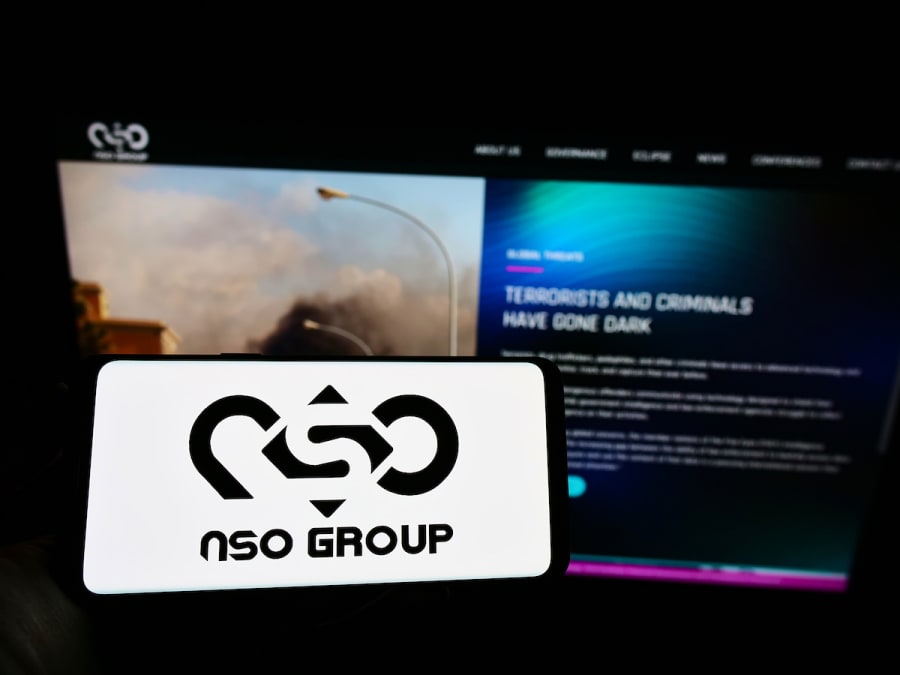Israeli Defense Ministry bans cyber-tech sales to 65 countries – including UAE and Morocco – following NSO controversy, according to a report
Ban places Israel in a conundrum: While eager to please Washington, it could harm Jerusalem’s burgeoning diplomatic relations with Sunni Arab world

Israel’s Defense Ministry has reportedly reduced the list of countries to which Israeli cyber companies can sell their technology, removing friendly Arab states such as the United Arab Emirates, Morocco and also Saudi Arabia, the Calcalist reported on Thursday.
The dramatic move, which would prevent tech sales to more than half of its international clientele, comes on the heels of a recent scandal involving the Israeli company NSO Group. The company's controversial malware system, Pegasus, was reportedly used by several governments to monitor around 1,000 journalists and political dissidents worldwide.
Apple itself announced Tuesday it is suing the company which allegedly used its spyware to break into Apple’s products to surveil targets.
In a lawsuit filed in California, Apple contends that NSO Group employees are “amoral 21st-century mercenaries who have created highly sophisticated cyber-surveillance machinery that invites routine and flagrant abuse.”
Israel's own Defense Ministry decision constitutes a major setback for the Israeli cyber-tech industry whose export market was dramatically reduced from 102 countries to merely 37 countries. The common denominator for the banned countries is undemocratic and authoritarian regimes with poor human rights records.
The dramatic Israeli decision is likely directly linked to growing pressure from the United States and European democracies to address governments repressing fundamental human rights such as freedom of speech – and allegedly using advanced Israeli cyber technologies to reach their goals.
French President Emmanuel Macron was reportedly one of the most prominent targets of the Israeli Pegasus malware scandal, causing serious diplomatic friction between Paris and Jerusalem.
In early November, the United States Commerce Department blacklisted NSO as well as Candiru, another controversial Israeli cyber-tech company.
“The spyware tools were used to maliciously target government officials, journalists, businesspeople, activists, academics, and embassy workers,” U.S. Secretary of Commerce Gina M. Raimondo said in connection with the decision to blacklist the two Israeli companies.
The recent cyber-tech scandal places Israel between a rock and a hard place. On one hand, Jerusalem is eager to repair diplomatic frictions with its main ally Washington and important European democracies such as France. On the other hand, the ban could potentially have negative implications for Jerusalem’s burgeoning diplomatic relations with the Sunni Arab world. The list of banned countries includes the UAE and Morocco, both of which signed normalization agreements with Israel in 2020.
During the past year, relations have deepened significantly between Israel and these two Arab states in numerous fields such as trade, tourism, technology and military cooperation. Israeli Defense Minister Benny Gantz recently signed a historic defense agreement with Morocco, the first one of its kind between the Jewish state and an Arab nation.
The Israeli ban reportedly also extends to Saudi Arabia. While there are no official diplomatic relations between Israel and Saudi Arabia, there are growing covert ties between Jerusalem and Riyadh. The Saudis supported the historic Arab-Israeli Abraham Accords and gave the go ahead for Israeli commercial flights to use Saudi airspace, enabling direct flights between Tel Aviv and Bahrain and the UAE. In addition, Saudi Arabia and Israel both view the Iranian regime and its terrorist proxies as major threats to Middle Eastern stability.
Washington’s decision to dramatically reduce its role in the Middle East, has gradually elevated Israel to the role of a regional military and technological power and a cyber technology guarantor for governments across the Middle East.
The ban on Israeli cyber tech to key Arab states could create friction between Israel and its new friends in the Arab world. And if Israel wants to preserve its position as a leading global cyber-tech nation, it must protect its industry. The blacklisted Israeli NSO Group, for example, is reportedly at risk of defaulting on its half billion dollar debt.
The Jewish state is finding it must tread carefully in order to maintain strong relations with different allies that are often guided by contradictory sets of priorities and values.

The All Israel News Staff is a team of journalists in Israel.













